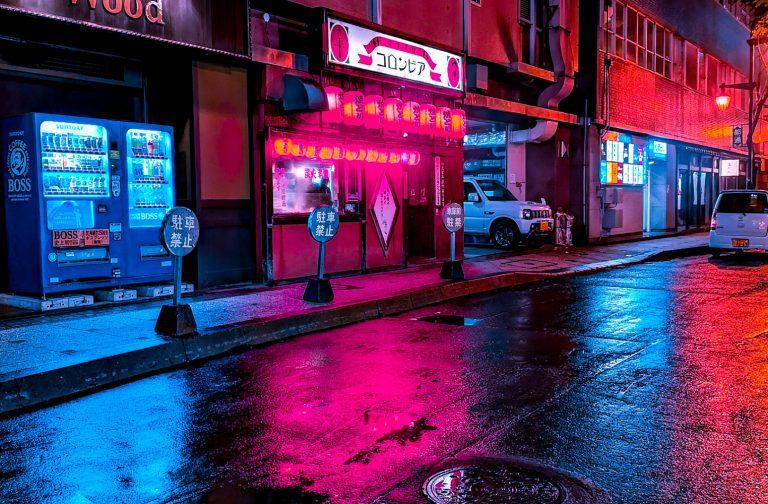Iran, Hong Kong, India: Failed Protests Point to Need for Crypto-Anarchy ‘Second Realms’
Publikováno: 13.12.2019
 What is the second realm? It’s both an abstract and concrete “place” parallel to here, where temporary autonomous zones (TAZ) provide a chance to escape the burning surveillance spotlight of the state and brutal law enforcement culture, and allow for at least temporary exercises of human rights and freedom. A TAZ may allow for free […]
What is the second realm? It’s both an abstract and concrete “place” parallel to here, where temporary autonomous zones (TAZ) provide a chance to escape the burning surveillance spotlight of the state and brutal law enforcement culture, and allow for at least temporary exercises of human rights and freedom. A TAZ may allow for free […]
The post Iran, Hong Kong, India: Failed Protests Point to Need for Crypto-Anarchy ‘Second Realms’ appeared first on Bitcoin News.

What is the second realm? It’s both an abstract and concrete “place” parallel to here, where temporary autonomous zones (TAZ) provide a chance to escape the burning surveillance spotlight of the state and brutal law enforcement culture, and allow for at least temporary exercises of human rights and freedom. A TAZ may allow for free and private trade of crypto and other goods, use of substances, and freedom of speech unafforded by the state. As governments worldwide crackdown violently on protestors more and more, these decentralized, concrete nodes of freedom become increasingly essential to the true proliferation of liberty in our lifetimes.
Also Read: New Cypherpunk Podcast Debuts Discussing Cryptoanarchy
The Second Realm
Sometimes the best way to defeat one’s enemy is to remain quiet and just do what you want. The protestor shouting in the street and lobbing rocks at riot cops may not be morally amiss, but ultimately a club to the face, pepper spray, jail time or a bullet awaits him. Begging tyrannical governments to please give some more leeway to exercise natural rights ultimately amounts to further empowering the control freaks at the top. After all, how would you feel as a ruler to see hundreds of thousands standing below in the streets, begging and yelping for mere permission to have their rights back? The power dynamic is clear.
Though the exact body count is disputed, a look at what’s happening in Iran with the recent lethal crackdown on gasoline price protestors shows who is ultimately in control. Similarly, protests and demonstrations continue in Hong Kong. Though some semblance of good seems to have been won there, struggle through police brutality and reported protestor violence against Beijing supporters has led to little but another form of slavery-lite. To the ignorant, flag-waving praise of the brutal American regime, complete with continued submission to mob rule, democratic governance. In another example, residents of India in recent months have not been able to access their own bank accounts, though they’ve demonstrated and petitioned persistently.
Protest is typically a first realm strategy. The second realm takes a much more direct approach. We don’t ask, we take what is rightfully ours. The second realm is both abstract and concrete, and its definition varies from place to place. Though nothing is a one-size-fits-all solution in scale or quality for the above listed woes currently plaguing the earth, the second realm focuses on individuals, and what they can do right now to take a little power back for themselves.

Temporary Autonomous Zones
TAZs can be both physical, brick and mortar locations or more virtual and cyber spaces. A TAZ might be a private club, abandoned shipping container, or one’s own inconspicuous house where anarchists meet on weekends. It could be a darknet website, an OTC trading platform, a campground for a weekend, or a moving train car. Though a more conspicuous example, it can also be an event, such as the recent Don’t Comply activists’ illegal feeding and sheltering of the homeless in Dallas, Texas.
Anywhere that is generally out of the purview and attention of the state, or which becomes more of a hassle to investigate and invade than to just let it be, can be a useful TAZ. In the case of the Texas activists, police interference with the legally armed lawbreakers would likely be much more costly both physically and reputationally than simply letting them function in peace. In fact, what the second realm affords is a chance to exercise freedom in the same way that the state does. Backdoor meetings, quiet alliances, and private favors and trades. It cannot be said that top makers and enforcers of the state’s laws are truly beholden to those same rules. They function largely in anarchy. Why not allow good people the same freedom?
We just released a new episode of the Cypherpunk Bitstream podcast where we talk about "The Second Realm": Is more liberty possible? Parallel systems, conflict management, TAZs, and The Sovereign Individual. https://t.co/UUSkEOvvsC
Hosts: @TheRealSmuggler & @thefrankbraunpic.twitter.com/hPC33NmUwi
— Frank Braun (@thefrankbraun) December 11, 2019
Unobtrusive Non-Compliance
Cryptoanarchists Frank Braun and Smuggler have recently released the second episode of their new Cypherpunk Bitstream podcast and go in-depth on the subject of the second realm. A point they repeatedly emphasize is the utility of blending in and remaining outwardly polite — as well as being a ‘non-good’ target for law enforcement. This goes hand-in-hand with maintaining good relationships with those surrounding oneself. Smuggler details:
Give them a story that is not too wrong … Keep a certain mystery, don’t tell everything, but give the plausible and unsuspicious part of what you do … Just be a good neighbor … build relationships, because they’re your allies.
He goes on to detail an episode where law enforcement was snooping around his community, and good relationships with those in the area helped to disincentivize further state interest (presumably in non-violent activities the state deems illegal). Braun and Smuggler note the value of impersonal non-compliance. Give a fake name. Don’t get hot-headed and shout about your right not to give it. Give a real name but refuse a search. Make yourself a “non-threatening” pain in the ass that isn’t worth the state’s time and resources. This can be part of the essence of functioning effectively in the second realm.

Free Trade and Free Association
Second realm strategies don’t have to be illegal. Free and private trade of crypto can be afforded to individuals everywhere via non-KYC, encrypted internet trading platforms and private chats. Whether or not the individuals then choose to report their dealings to a violent agency like the IRS is up to them and only them.
Decentralized exchanges also afford crypto enthusiasts the ability to trade more freely, without jumping through the cumbersome, unethical hoops imposed by a violent, non-individual-self-ownership-respecting state. The second realm affords traders the ability to buy and sell in person, privately. If person A wants to sell a plant like cannabis, and B has the crypto to pay, they might meet in any TAZ and make their transaction with the lowest possible risk of state interference. Also with the lowest risk of attributability. Meeting in a crowded TAZ, in an urban environment for example, makes it harder for law enforcement to pinpoint any “guilty” party associated with the plant matter should they invade.

A Network of TAZ ‘Nodes’
Critics of the second realm strategy might say it’s a fantasy. A kind of libertarian live action role play which ultimately has little effect on the tyranny of the state. But look where centuries of riots and protests have put humanity. The global economic and social situation at present is dire, with blatant abuse of human rights becoming more and more commonplace. One small shipping container facilitating disobedience and freedom for a few people may not seem like much, but multiply this “node” by a thousand, and then a hundred thousand, and that concrete feeling of freedom inspired by direct experience — and the network effect of disempowering the state and its culture via non-participation — becomes clear.
In the same way a decentralized network like Bitcoin has gained value and ubiquity to the point of being virtually unstoppable — and this in parallel, and not in direct opposition to, existing monetary systems — so can “encrypted people” around the world exercise freedom and liberty now, with a little knowledge and awareness, by creating their own second realms.
There is always risk to such disobedience. There is also great personal and societal risk in continuing to comply with anti-human laws and regulations. Each individual must decide what is right for them, of course. That said, a whole decentralized world of tiny nodes would be much freer than the monolithic, centralized violence we experience at present. And like cryptocurrencies, people could pick and choose freely which social nodes and networks they’d like to participate in, instead of being forced into non-consensual relationships, as is the current dysfunctional model under statism.
What are your thoughts on the second realm? Let us know in the comments section below.
Op-ed disclaimer: This is an Op-ed article. The opinions expressed in this article are the author’s own. Bitcoin.com is not responsible for or liable for any content, accuracy or quality within the Op-ed article. Readers should do their own due diligence before taking any actions related to the content. Bitcoin.com is not responsible, directly or indirectly, for any damage or loss caused or alleged to be caused by or in connection with the use of or reliance on any information in this Op-ed article.
Images courtesy of Shutterstock, fair use.
You can now purchase Bitcoin without visiting a cryptocurrency exchange. Buy BTC and BCH directly from our trusted seller and, if you need a Bitcoin wallet to securely store it, you can download one from us here.
The post Iran, Hong Kong, India: Failed Protests Point to Need for Crypto-Anarchy ‘Second Realms’ appeared first on Bitcoin News.